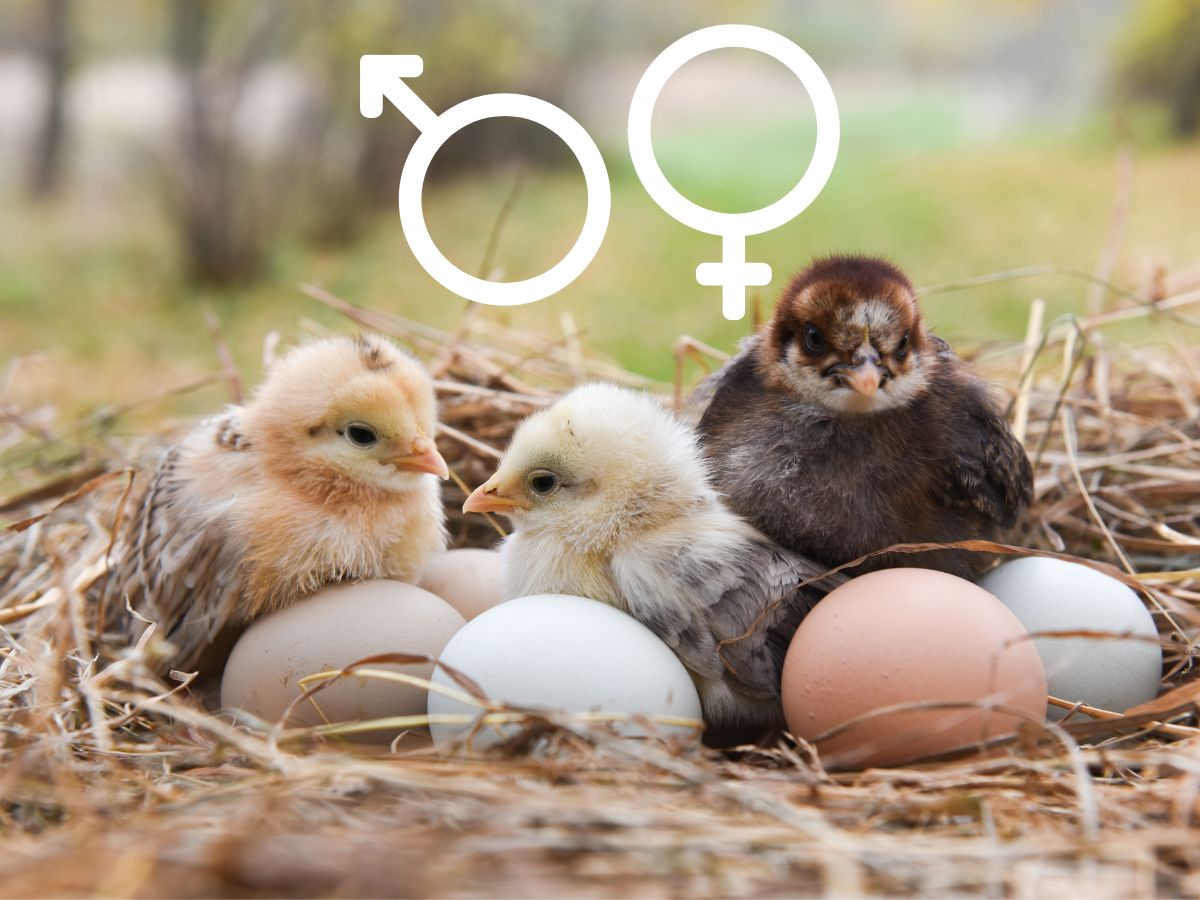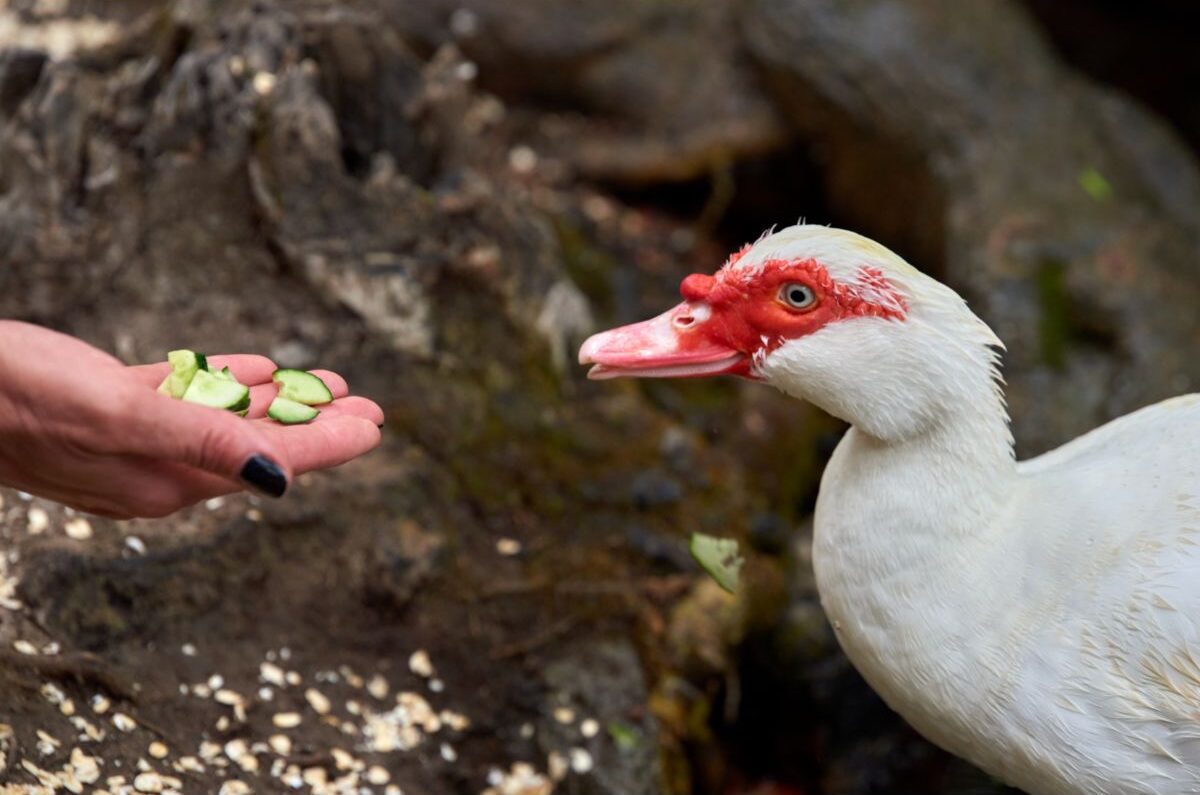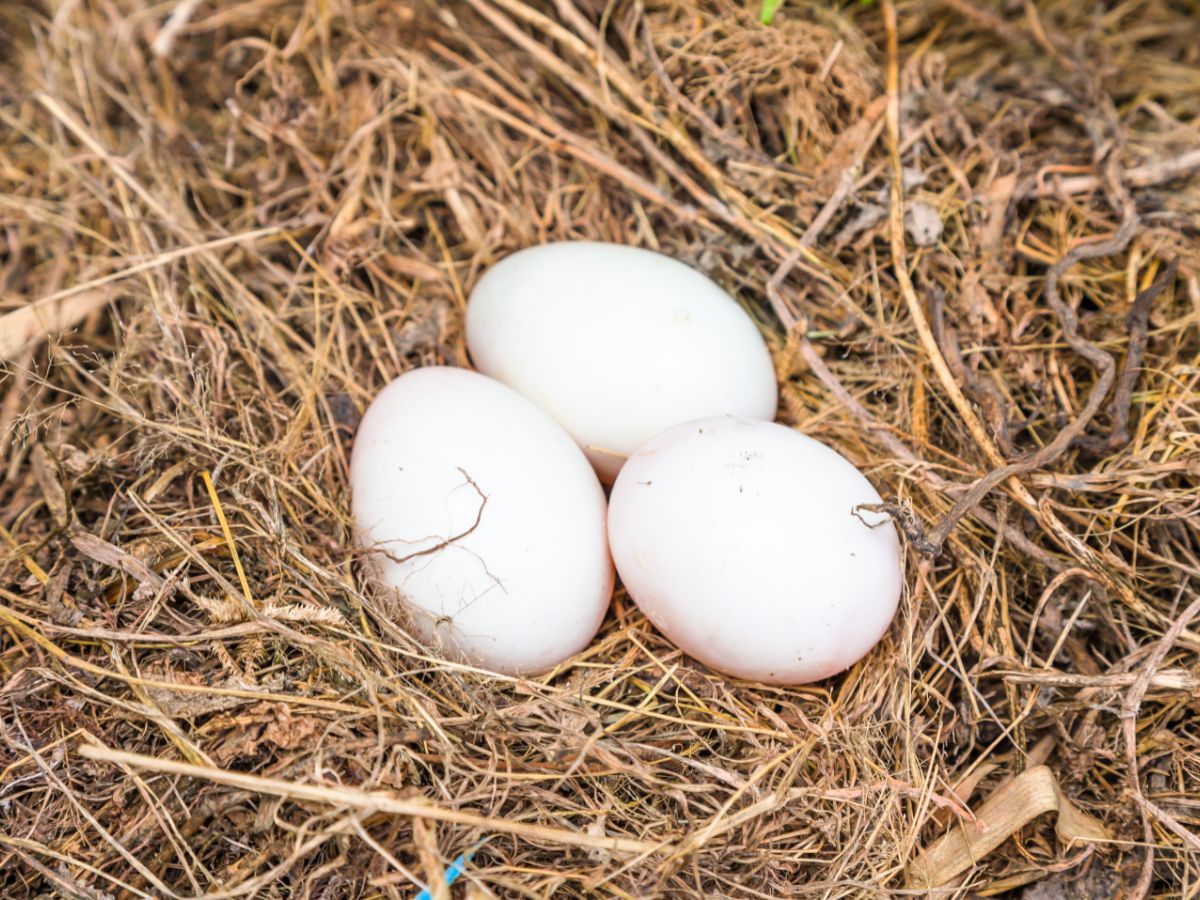Having baby chicks is always a joy. However, sexing baby chicks can seem daunting when you’re unsure how to do it. Several methods are used to determine whether a chick is female or male.
There are three different methods for determining the sex of chicks. Feather sexing is where the wings of the chicks are examined. The other way is to look at the coloring of the chicks. The last way that is often done by qualified professionals is vent sexing.
Fear not if you are worried about how each of these methods works, as all the information you need about sexing chicks will be covered below.
Contents
How Do You Sex Chicks?
Although many say the most straightforward technique to figure out a chick’s sex is to use time and wait for your chicks to develop, there are other ways you can determine their gender.
| Method | Difficulty level | Possible for which breeds? | When? | How to differentiate between male and female chick? |
| Color sexing | Easy | Only in certain breeds, e.g. Bielefelder Kennhuhn | immediately after hatching | depending on the breed different color/pattern of the chicks |
| Feather sexing | Medium | Only in certain breeds, e.g. Wyandotte chicken | immediately after hatching, or when the first feathers grow | – Timing of feather growth: Males significantly later than females – Shape of wing feathers: Females often two rows, males only one |
| Venting | Very difficult | In all chicken breeds | first days after hatching | Differences of the cloaca, only recognizable by experts! |
Sex Your Chicks By Looking At Their Coloring
Some chicks are bred to be different colors when they hatch. Even if they are of the same breed, males would be one color, and females will be another. There are also breeds that self-sex. Even though they are the same breed, males and females have distinct features.
You may also find chicks that have been bred to be sex-linked. Sex-linked hybrids are produced so that the males and females hatch with different hues. Females in sex-linked chicks are one hue, while males are another. For example, even though they are of the same breed, you may find that the girls are red while the males are yellow.
You must have specially bred chicks for this to work, just like with feather sexing. You may also have a breed that autosexes, like Barred Rocks. By looking at the place on top of their heads, you can sex Barred Rocks. Males have a large, amorphous patch on their neck, whereas females have more defined patches.
Color sexing is simpler than feather sexing. However, it is only applicable to specific breeds or crosses. Species like New Hampshire Red and Rhode Island Red chicks can be distinguished by their wing color. Some breeds have distinguishing male and female color patterns that will help you sex your chicks once they have developed their first actual feathers.
Some sex-linked chicken breeds are:
- Bielefelder Kennhuhn
- Dwarf Barnevelder
- New Hampshire Red
- Rhode Island Red
In the Bielefeld Kennhuhn, the male chicks have a white spot on the head and are light in color, while the female chicks are darker and have a striped back.
Chicks Can Be Sexed By Looking At Their Feathers
To feather or color sex a chick, you must first have a chick with the appropriate DNA. Feather sexing refers to determining the relative length of the chick’s wing pin feathers. Male chicks will generally have the same length of pin feathers.
Some chicken breeds where feather sexing is possible:
- Wyandotte chicken
- Cochin chicken
- Plymouth rock
- Brahma chicken
- Rhode Island Red
However, females will have pin feathers that are of different lengths. Many chickens may be feather sexed by inspecting the wing feathers within the first two days of hatching. Females have longer flying feathers on their wings and a second row of feathers.
Males have shorter flight feathers and frequently only one row. Your pullets will be hatched with wing feathers in certain breeds, but not so for cockerels. It is vital to highlight that if the parent lines are correctly sexed, feather sexing is often a 100 percent accurate procedure.
Chick Sexers Use A Method Called Venting To Sex Chicks
You’re out of luck if you don’t have feather sexing chicks, no sex links, and aren’t producing an autosexing breed like Barred Rock. Most chicks cannot be sexed easily. This is where venting comes in.
Chick sexers are employed by hatcheries to force the poo out of the chick, flip it upside down, and search for a little hump in the vent. The existence of the bump implies that the chick is male.
These workers practice and learn to accomplish this, and it is not faultless. Even the most expert chick sexers have an accuracy rate of roughly 85%. If you try this without sufficient training, the chick may be hurt. While vent sexing is a reliable way of sexing chicks, it is typically used as a last resort.
Vent sexing is possible on almost any non-bantam chick. The chick’s anal vent, called a cloaca, is left open, allowing the chicken sexer to check if the chick has a small bump. Some ladies have lumps as well, so the sexer must use discretion.
Unless you have the right genetics, the best thing a backyard breeder can do is allow the chicks to reach puberty and begin displaying secondary sex characteristics. Vent sexing day-old chicks is a specialized ability that only a handful possess.
When Does It Become Clear What Gender A Chicken Is?
There will be those who believe that you can pick up a young chick and see if it holds its legs up or leaves them dangling to determine whether it is male or female. It varies according to the breed and comb style.
D’uccle cockerels, for example, have visible combs by the third week or so. On the other hand, Silkies are famously tricky to sex, with many still struggling to discern males from females at 2-3 months of age. By 6 weeks of age, most breeds have determined whether they are pullets or cockerels.
Other breeds, such as the Barred Rock and some hybrids, known as sex links, are visible at hatch because their colors or markings differ. This is Red Sex Links. Males are yellow, while females are crimson.
Some birds are bred deliberately to be feather sexed at hatch based on how their flight feathers grow. This does not apply to all breeds! That is a widespread misunderstanding. Suppose your chicks are not sex links and were not bred to be feather sexed.
In that case, you must wait until they begin to exhibit secondary sex characteristics. For breeds with huge combs, you may detect the difference fairly immediately since males develop a significantly larger, redder comb in a matter of weeks.
Breeds with small combs must be waited on until they have real feathers. When the males are different colors than the females, color patterns can be determined in as little as five weeks. If the males and females are the same general color, such as black or white chicks, you must wait until the males have defined saddle, hackle, and sickle feathers.
Conclusion
Sexing chicks isn’t as difficult as many think it is. There are well-known methods that work well and can help you determine the gender of your chicks in no time.




